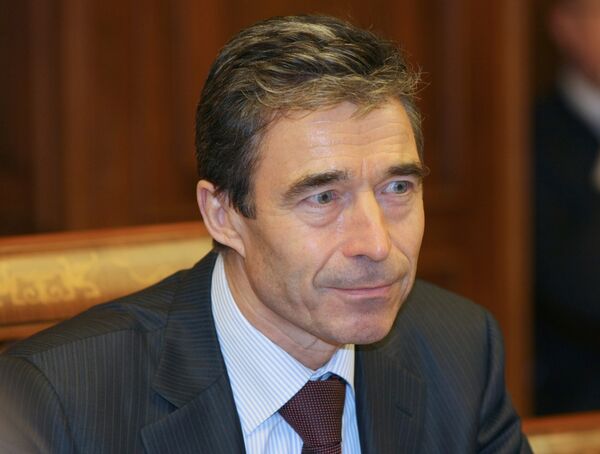NATO has decided to extend its airborne and maritime surveillance in the Mediterranean region, the alliance's Secretary General Anders Fogh Rasmussen said on Thursday.
The decision was taken amid continuing battles between opposition supporters and forces loyal to Libyan leader Muammar Gaddafi. Thousands of people have been killed since the first protesters began in mid-February demanding the end of Gaddafi's 41-year rule.
International concern over the situation in Libya is growing as Gaddafi loyalists continue airstrikes against rebel-held areas in the country's east. The NATO leadership has asked its generals to draw up a plan for possible military action in the country, but pledged that it would act strictly in accordance with the UN Security Council's decisions.
"NATO is not looking to intervene in Libya, but we have asked our military to conduct the necessary planning for all eventualities," Rasmussen said in Brussels, where NATO and the European Union are holding on Thursday a meeting on the situation in Libya.
"As part of that planning, we have decided to extend the surveillance of air and sea in the region," Rasmussen said, adding that the NATO's AWACS (airborne early warning and control) aircrafts will do surveillance in the region on a 24/7 basis.
"Through that we will get a better picture of what is going on, and that is of course essential to better inform our planning for all eventualities," the NATO secretary general said.
NATO has been carrying out its Operation Active Endevour aimed at preventing terrorism, drug, arms and human trafficking in the Mediterranean since 2001.
The NATO-EU meeting in Brussels is expected to focus on military options, including a possibility of imposing a no-fly zone over Libya to prevent Gaddafi's planes from bombing rebels.
BRUSSELS, March 10 (RIA Novosti)


